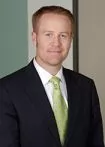On March 17, 2016, the California Fair Political Practices Commission ("FPPC") amended its regulations to narrow the so-called "ride-along" exception. The exception is now available only to in-house employees who act as "subject matter experts" in communicating with California government officials while accompanied by a registered lobbyist employed or retained by their employer. The practical effect of the amendment for organizations that communicate with California government officials about public policy is that they should no longer categorically exclude meetings in which employees are accompanied by a lobbyist from lobbyist registration threshold calculations. Instead, a meeting-by-meeting analysis must be conducted to determine whether the in-house employee qualifies as a "subject matter expert" with regard to a given meeting.
Generally speaking, under California's Political Reform Act and FPPC rules, an individual acting on behalf of their employer triggers lobbyist registration if he or she spends one-third or more of their compensated time in any calendar month on directly communicating with California officials to influence government action. Outside individual contractors trigger registration if they are paid $2,000 or more per month for such activity. Under the FPPC's previous rule, the "ride-along" exception allowed both in-house employees and outside consultants to not count any time spent communicating with California government officials while "in the company of" a registered California lobbyist toward their one-third or $2,000 compensation registration threshold.
The new rule explicitly limits the application of the ride-along exception in two ways: (1) The exception is now available only to in-house employees who meet with California officials on behalf of their employer while accompanied by a registered lobbyist who also is retained or employed by their employer; and (2) the in-house employee's participation in the meeting must be limited to acting as a "subject matter expert" regarding the governmental action at issue.
In adopting the amendment, the FPPC staff acknowledged that the text of the previous rule made the ride-along exception available to both in-house employees and outside consultants; argued that such broad application was contrary to the rule's original intent; and noted the Commission's inability to pursue enforcement action against certain outside consultants, including former California Lt. Governor Cruz Bustamante, who successfully argued that the exception precluded their meetings with government officials from triggering a registration obligation.
Although commenters asked for clarification on the phrase "subject matter expert," the FPPC offered no clarification. The FPPC staff-level description of the amendment explains that the phrase is intended to apply to "a person with particularized knowledge or experience on the topic at hand," but that interpretation was not specifically endorsed by the Commission. How the exception will be interpreted and applied by the FPPC in the future remains to be seen.
This article is designed to give general information on the developments covered, not to serve as legal advice related to specific situations or as a legal opinion. Counsel should be consulted for legal advice.


